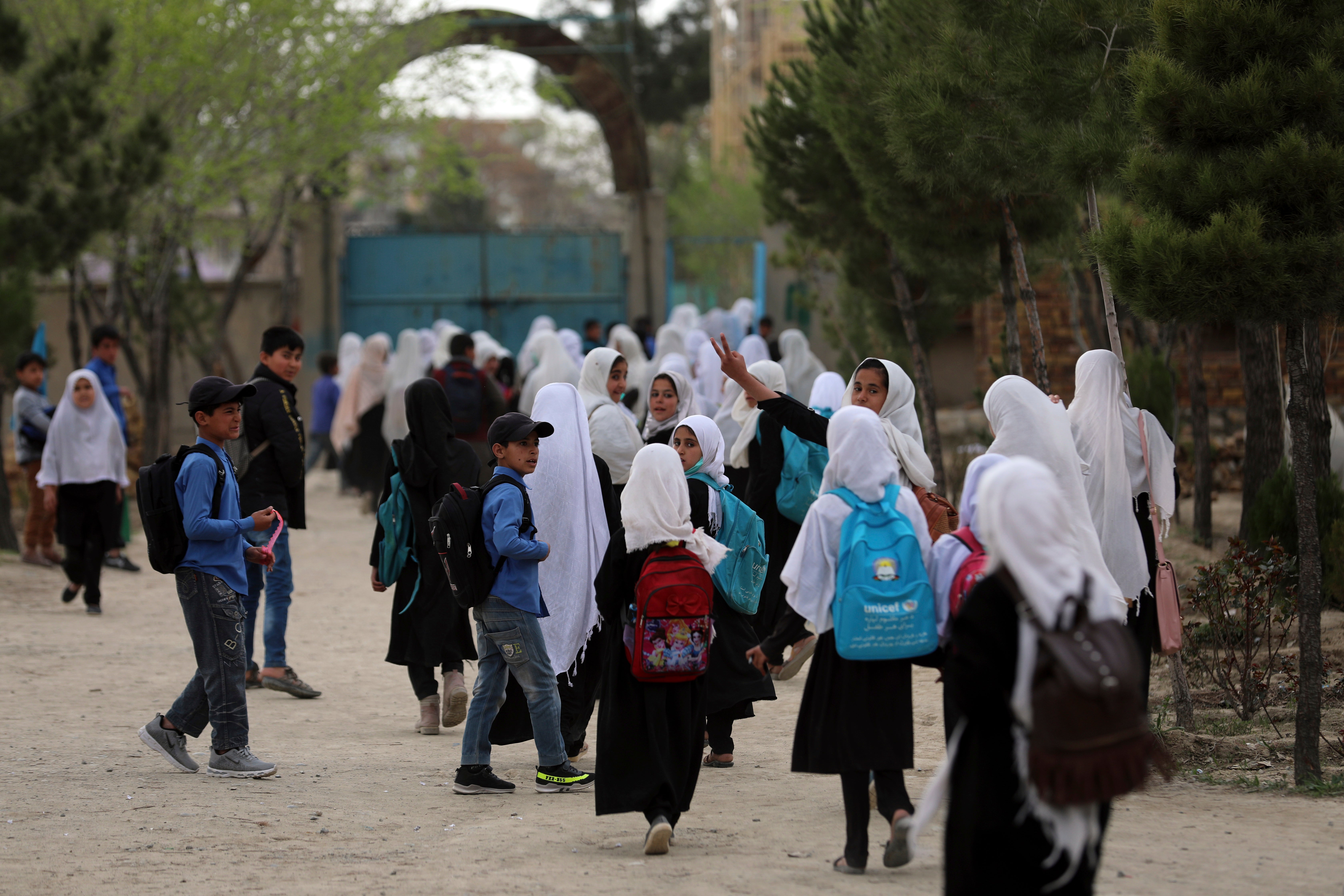Female ministers urge Taliban to rethink decision on girls
Female foreign ministers from 16 countries around the world say they're “deeply disappointed” that Afghan girls are being denied access to secondary schools and called on the Taliban to reverse their decision

Your support helps us to tell the story
From reproductive rights to climate change to Big Tech, The Independent is on the ground when the story is developing. Whether it's investigating the financials of Elon Musk's pro-Trump PAC or producing our latest documentary, 'The A Word', which shines a light on the American women fighting for reproductive rights, we know how important it is to parse out the facts from the messaging.
At such a critical moment in US history, we need reporters on the ground. Your donation allows us to keep sending journalists to speak to both sides of the story.
The Independent is trusted by Americans across the entire political spectrum. And unlike many other quality news outlets, we choose not to lock Americans out of our reporting and analysis with paywalls. We believe quality journalism should be available to everyone, paid for by those who can afford it.
Your support makes all the difference.Female foreign ministers from 16 countries around the world said Friday they are “deeply disappointed” that Afghan girls are being denied access to secondary schools and called on the Taliban to reverse their decision.
Afghanistan’s Taliban rulers unexpectedly decided against reopening schools on Wednesday to girls above the sixth grade, reneging on a promise and opting to appease their hard-line base at the expense of further alienating the international community. So far, they have refused to explain the sudden decision.
"As women and as foreign ministers, we are deeply disappointed and concerned that girls in Afghanistan are being denied access to secondary schools this spring," the foreign ministers of Albania, Andorra, Australia, Belgium, Bosnia, Canada, Estonia, Germany, Iceland, Kosovo, Malawi, Mongolia, New Zealand, Sweden, Tonga and Britain said in a joint statement.
They said the decision “is particularly disturbing as we repeatedly heard their commitments to open all schools for all children.”
“We call upon the Taliban to reverse their recent decision and to grant equal access to all levels of education, in all provinces of the country," they added.
The world has been reluctant to officially recognize Afghanistan’s new rulers, concerned the Taliban would impose similar harsh measures and restrictions — particularly limiting women’s rights to education and work — as when they previously ruled the country in the late 1990s.
The ministers said they “watch closely whether the Taliban deliver on their assurances.”
“We will measure them by their actions, not by their words,” they said. “The scope and extent of our countries’ engagement in Afghanistan beyond humanitarian assistance will be tied to their achievements in this regard.”
They said access to education is a human right to which every girl and woman as entitled, and that “no country can afford to not take advantage of the potential and talent of its entire people.”